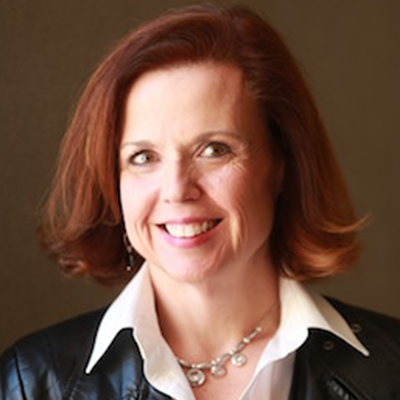 Every decision Pam Landis makes is motivated by the same litmus test: will it help make the patient journey easier and more seamless?
Every decision Pam Landis makes is motivated by the same litmus test: will it help make the patient journey easier and more seamless?
Landis is vice president of information services at Carolinas Healthcare System, a 39-hospital system in North and South Carolina that's been doing a lot of forward-looking work in digital health through programs like MyCarolinas Tracker, which uses consumer-grade connected devices to track patients' health after they leave the hospital. She will be a presenter at our Digital and Personal Connected Health forum at the HIMSS annual conference on February 19th and 20th in Orlando.
[Don't miss out on the premier digital health event at HIMSS17 -- check out our lineup of digital health innovators and be sure to register for the event when you sign up for HIMSS!]
"I’m lucky," Landis told MobiHealthNews in an interview. "I have a very patient-focused CIO and a CEO who understands what radical convenience looks like for a patient. Now in some ways I’m lucky, but in other ways, it’s my obligation to make sure that I’m representing the voice of the patient to them and to really walk them through that and show them what that patient experience is like and what it can be like. Understand what you have today, what you want to get to, what that gap is that you’re filling."
Landis says two things will drive the success of digital health interventions in the hospital: that they are done for the right reason and that they are as easy and seamless for the patient as they possibly can be.
"You don’t do it just to do it because you think it’s neat," she said. "You do it because (A) it’s the right thing for the patient clinically and (B) it can be the right way to take cost out of the equation. Those have to be the two guidelines: the clinical experience is enhanced and the cost experience isn’t overburdened."
As for ease of use, Landis says hospitals should be comparing themselves not to other parts of the healthcare system, but to other consumer-facing industries, because those are the comparisons patients will make.
"We can’t expect our patients to bring medical devices into their homes and attach them to their phones and make that an easy experience," she said. "We have to have blood pressure cuffs that are out in the market and available on Amazon that they can purchase and then send that data to it. [We have to make sure] when we’re building websites and mobile apps that our tools are as slick and as easy to use as Amazon and Expedia. Because that’s who our patients compare us against. Booking an appointment online with your doctor should not be any more difficult than buying a ticket on Expedia. From a patient’s perspective, when we talk to them, that’s what they’re telling us: Life is so hard, make healthcare easier."
At the event in February, Landis will present some of the first findings and patient feedback from trials of MyCarolinas Tracker with diabetes patients, patients with congestive heart failure, and patients who have had liver surgery. She hopes that feedback will help them to build the platform into something as sticky as social media.
"How do we make tools that are so easy that people will want to use them every day?" she said. "I check Facebook five times a day. Why am I not checking my health status five times a day? What is it about Facebook that is so highly sticky and maybe a little addictive that makes me want to look at it a lot? Whereas I’m not looking at my tracker information as much. That’s the chellenge for all of us."
The other thing that might gradually change for Carolinas as it learns from early efforts is what will be done with the data once it's collected. Currently, doctors have access to patients' data at their visits, but in between visits, as it's collected, it's only made available to care managers.
[Join innovators from Cleveland Clinic, Intermountain, Partners Healthcare, Cedars-Sinai and more! Don't miss out on the premier digital health event at HIMSS17 -- check out our lineup of digital health innovators and be sure to register for the event when you sign up for HIMSS!]
"We did that deliberately because we did not want to flood our physicians with a lot of data in between visits," Landis said. "That data is available to them when they see the patients, but the monitoring of that data in realtime is being done by care managers. I think [what to do with the data] is a great question that we as an industry need to understand and figure out. Where does patient-generated go? How is it acted on? How do we respond to those things? There’s a great opportunity there and I don’t think there is a big silver bullet around those questions yet."
Landis says that over the last year a lot of progress has been made around APIs and data interoperability, but there's still a long way to go. Still, she encourages other health systems to pursue Carolinas's patient-focused strategy.
"We try to think creatively, but realistically," she said. "And what we’re most interested in the Carolinas is how do we use technology to connect patients and their clinicians better, in a way where we say to the patient ‘You’re the captain of this health journey and we’re here to support that journey.’"




















